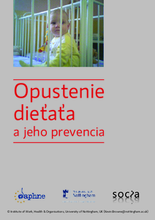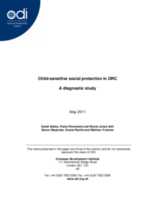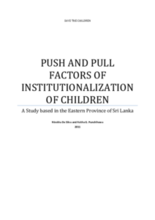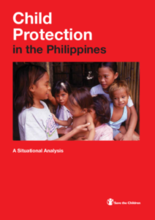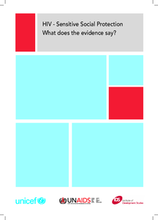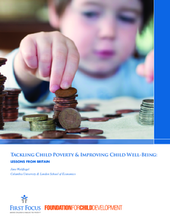Displaying 411 - 420 of 505
This document is a Slovakian language summary brochure of the Manual of Best Practice titled ‘Child Abandonment and its Prevention in Europe,’ specific to child abandonment in Slovakia.
This paper draws on the Luxembourg Income Study (LIS) microdata to paint a portrait of child poverty across a diverse group of countries, as of 2004–2006.
This paper looks at how social protection is evolving in developing countries and how it relates to the vulnerabilities of children. It goes on to present the different conceptual models for protection and how they have changed and been influenced by the changing definition of poverty and the growth in transnational knowledge and policymaking.
This paper attempts to look at the responsiveness of global social policy to addressing multidimensional child poverty, through the experience of UNICEF's Global Study on Child Poverty and Disparities.
This study analyzed the current social protection environment in the Democratic Republic of the Congo (DRC) and examined the “vulnerabilities and risks facing children living in poverty in Kinshasa, Bas Congo and Katanga provinces.”
This research on the institutionalization of children in the Eastern Province of Sri Lanka was carried out by Save the Children with the support of the Department of Probation and Children Care Services and National Institute of Social Development.
This situational analysis was commissioned by the Child Protection Initiative as a preliminary exercise to develop evidence-based recommendations to guide Save the Children in the Philippines to develop interventions. Priority areas are children in residential care, children in armed conflict and disasters, children in situations of migration (including for trafficking purposes), and children in exploitative and hazardous work conditions.
Shows how HIV-sensitive social protection can reduce vulnerability to HIV infection, improve and extend the lives of people living with HIV, and support individuals and households. While not specific to children, the paper includes sections on HIV and Child Protection and HIV and Early Childhood Development.
This paper, written for a US audience, describes recent efforts to reduce child poverty by a peer country, Britain. Drawing on research carried out over the past decade, this paper summarizes what we know about Britain’s war on poverty, their likely next steps, and implications and lessons for the US.
This report examines the impacts of HIV on the care choices of children, exploring how HIV affects whether or not children can remain within parental care, and on the alternative care options open to them.

